PLENARY SPEAKERS
CHAIRS
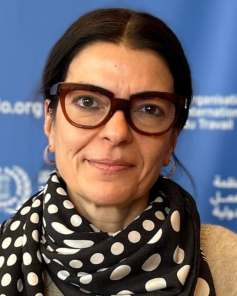
Ipek Ilkkaracan
Istanbul Technical University, Turkey
İpek İlkkaracan is full-time faculty member at Istanbul Technical University, Faculty of Management. She was an elected Board member of IAFFE in 2015-2017 and 2021-2024; she served as the President in 2022- 23 and is the Conference Chair for its Annual Conference 2024 Rome. Ilkkaracan is a Research Associate with the Levy Economics Institute (New York) and the Economic Research Forum (ERF Cairo), and an Associate Editor of the Feminist Economics journal. Ilkkaracan’s areas of research entail the care economy, gender and macroeconomics, gender gaps in political ideology and its interactions with gender economic gaps, labor markets and development. Her ‘Purple Economy’ model, which depicts a gender-equal and caring economic order, was adopted as an advocacy and training tool by women’s organizations, including the European Women’s Lobby (Brussels), the International Women’s Rights Action Watch Asia- Pacific (Malaysia), Women for Women’s Human Rights (Türkiye).
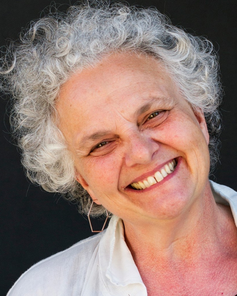
Marcella Corsi
Sapienza University of Rome, Italy
Coming Soon
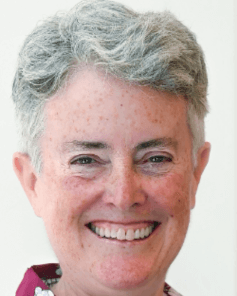
Lee Badgett
University of Massachusetts – Amherst, US
M. V. Lee Badgett, PhD, is a pioneering researcher of the global cost of homophobia and transphobia, economic empowerment of LGBTI+ people, and LGBTI+ economic inequality. She is currently the Chief Economist and co-founder of Koppa: The LGBTI+ Economic Power Lab. She is also a Professor Emeritx of Economics and former director of the School of Public Policy at the University of Massachusetts Amherst. She is also a Williams Distinguished Scholar at UCLA’s Williams Institute, where she was a co-founder and the first research director. Her latest book is The Economic Case for LGBT Equality: Why Fair and Equal Treatment Benefits Us All (Beacon Press, 2020). She has worked with the World Bank, Open For Business, UNDP, USAID, IDB, ADB, the U.S. State Department, OECD, global businesses, and many LGBTI+ organizations.
PLENARY SPEAKERS
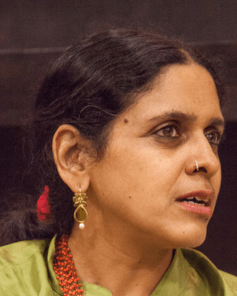
Anita Gurumurthy
IT for Change, Bangalore, India
Anita Gurumurthy is a founding member and Executive Director of IT for Change where she leads research and advocacy on data and AI governance, platform regulation, and feminist frameworks on digital justice. She serves as an expert on various bodies – including as co-chair of the T20’s digital transformation working group on platform governance and has been part of the High Level Committee of the NetMundial+10 under Brazil’s leadership , the UN Secretary- General’s 10-Member Group on Technology Facilitation, and the Paris Peace Forum’s working group on algorithmic governance. Anita is also a Board member of global justice organizations such as the ETC Group, and University centers such as the Tech & Policy Lab at the University of Western Australia, and International Development and Social Change program of Loughborough University. Anita contributes regularly to academic and media spaces.
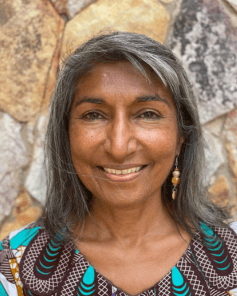
Charmaine Perera
Editor Feminist Africa
Charmaine Pereira is an independent feminist scholar living and working in Abuja, Nigeria. Her research and writing address the gender and sexual politics of violence, feminist thought and practice, and the politics of natural resource extraction in Africa. She has organised and co-ordinated action research on the theme of sexual harassment and sexual violence in Nigerian universities with a view to working on strategies for change. Pereira is the author of Gender in the Making of the Nigerian University System (James Currey/Partnership for Higher Education in Africa, 2007), editor of Changing Narratives of Sexuality: Contestations, Compliance and Women’s Empowerment (Zed, 2014), and co-editor of Jacketed Women: Qualitative Research Methodologies on Sexualities and Gender in Africa (UCT Press and United Nations University Press, 2013). She has been an active force in the coalition pushing for the passage of the Violence Against Persons (Prohibition) Act, 2015 in Nigeria and has coordinated research on implementation of the law. She is one of the seven Editors of Feminist Africa and co-convenor of an international conference on Digitalisation, AI and Feminist Futures, to be held in Mozambique in July 2024.
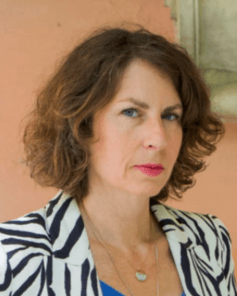
Dorit Geva
University of Vienna, Austria
Dorit Geva is Professor of Politics and Gender at the Institute for Political Science, University of Vienna. She has been studying the growing radical right in Europe for over a decade, focusing on the gender politics of the new radical right, the radicalization of conservatism, and how radical-right politics are reforming 1990s neoliberalism. Her recent publications focus on the gender politics of the far-right in Europe, anti-gender politics in France, the rise of what she calls an “ordonationalist” regime in Hungary, and rightwing transformations of higher education.
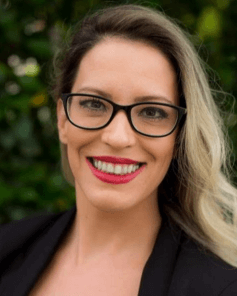
Rosana Pinheiro-Machado
University College Dublin, Ireland
Rosana Pinheiro-Machado is a Brazilian social scientist and a Professor of Anthropology focusing on economic and political transformations in emerging economies from an ethnographic perspective. She has been conducting fieldwork and developing international collaborations across several countries in the global south (especially Brazil, China, the Philippines, and India) and beyond. Her innovative research combines long-term and multi-sited on-the-ground ethnography with digital methods towards the study of topics of authoritarianism, far-right, labour, consumption, and poverty. A thread running through her research agenda is the desire to gain a longitudinal, local understanding of the major processes of world-making and world-ordering that have transformed emerging countries in economic and political terms. Pinheiro-Machado is the Director of DeepLab (Digital Economy and Extreme Politics Lab), which is an international hub of numerous PhD students, postdocs, research fellows and visiting scholars. She is the Principal Investigator of the project Flexible Work, Rigid Politics in Brazil, India, and the Philippines, funded by the European Research Council (ERC, Consolidator Grant). As an activist academic, she collaborates with several international organisations and social movements, acting as a public intellectual in Brazil and writing on politics and current affairs for major national and international newspapers. In 2023, Prof. Pinheiro-Machado joined the Ministerial Committee that discusses strategies to fight hate speech and extremism in Brazil (Ministry of Human Rights).

Camilla Gaiaschi
UNISALENTO, Italy
Researcher at the University of Salento, in Lecce. Before moving to Lecce, she held a Marie Curie Individual Fellowship at the University of Lausanne with the project WIRED – Women In Research and Higher Education. Her research interests focus on gender inequalities in the labour market and scientific professions (particularly in academia), university transformations, gender-focused welfare policies, and gender in science.
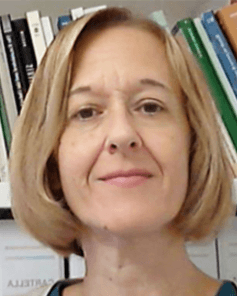
Marina Cacace
Knowledge and Innovations (K&I)
Senior researcher and gender expert at Knowledge & Innovation. Her research has long focused on science-society relations from a gender perspective, while her interests also include poverty, social exclusion, migration, and, from a methodological perspective, the application of complexity frameworks to evaluation. Over the last decade, she has been involved in the design and evaluation of Gender Equality Plans (GEPs) in several EC-funded projects on institutional change in research organisations.
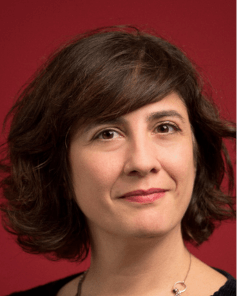
Barbara Kenny
Fondazione Brodolini, inGenere
Senior gender expert at Fondazione Giacomo Brodolini, her topics of expertise are gender mainstreaming, violence against women, women in science and gender communication. She is one of the founding members of Tuba, the women’s bookshop in Rome opened in 2007. She is also among the creators and curators of inQuiete Festival of women writers in Rome, since 2017.
Amanda Odoi
University of Cape Coast, Ghana
Amanda Odoi (She/Her) identifies as an academic, feminist and social justice advocate. She is a Research Fellow with the Centre for Gender Research, Advocacy and Documentation (CEGRAD) University of Cape Coast and is currently a Postdoctoral Research Fellow at the University of Western Ontario, Canada. Her research interests are in the areas of Masculinities, Gender Based Violence and Sexualities. She is interested in the significance and or symbolism of social construction in othering and shaping the politics of identity and belonging, particularly around gender and sexual minorities. She hopes to through her work, inform policy and practice where gender and sexual minority rights are acknowledged and respected.
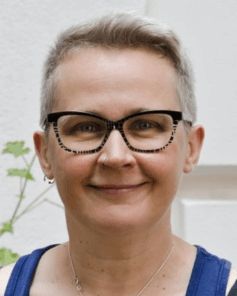
Karin Schönpflug
Institute for Advanced Studies, Austria
Karin Schönpflug is an economist and works at Vienna’s Institute for Higher Studies and the University of Applied Sciences; she is vice chair of the EU COST action “LGBTI+ Social and Economic (in)equalities”. Luan Pertl is a Systemic Organizational Development Counselor, Chairperson of the Organization Intersex International Austria and an Intersex Human Rights Defender on national and European levels. Together they have been working as counselors and activists for the LGBTI movement in Vienna and have provided research on the socio-economic status of ageing intersex people in Berlin.
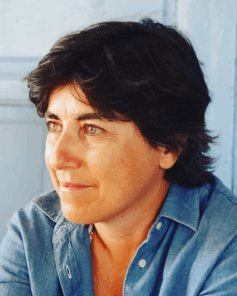
Lucia Urciuoli
EDGE LGBTI+ Leaders for Change, Italy
Lucia Urciuoli is the current President of EDGE and served as its Vice President from December 2020 to April 2023. She has been a member of the EDGE Steering Committee since 2014. For EDGE, she has mainly overseen the strategic planning, program management and fundraising activities for a number of important projects, several of which are dedicated to supporting care and reintegration projects for/of children who are victims of homophobic and transphobic violence, event organization, member networking activities, and specific support activities for businesses and freelancers associated through EDGE to EGLCC, the European LGBTQIA+ Chamber of Commerce.
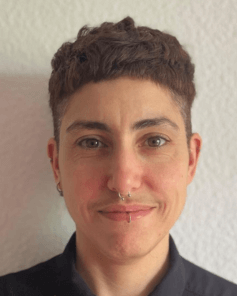
Pato Laterra
Universidad de Buenos Aires, Argentina
Pato Laterra holds an Economics degree from the University of Buenos Aires and a postgraduate degree in Care Policies with a Gender Perspective from CLACSO. He is a doctoral fellow in Social Sciences at the National Council of Scientific and Technical Research, based at the Interdisciplinary Center for the Study of Public Policy. He teaches Economics and Gender at the University of Buenos Aires, is a Junior Fellow at the Center for Applied Transgender Studies, and participates in the Assembly and the Observatory of travesti, trans, and non-binary workers of the State.
Svati Shah
University of Massachusetts, Amherst, USA
Svati P. Shah is an anthropologist trained in Columbia University’s joint program in anthropology and public health. They are based in the Department of Women’s, Gender and Sexuality Studies at the University of Massachusetts, Amherst, and serve as a Visiting Associate Professor at the University of Bergen in Norway. They also serve as a Research Associate at the University of Pretoria in South Africa. Their research addresses the intersections of sexuality and gender identity within questions of political economy, migration and social movements in India.